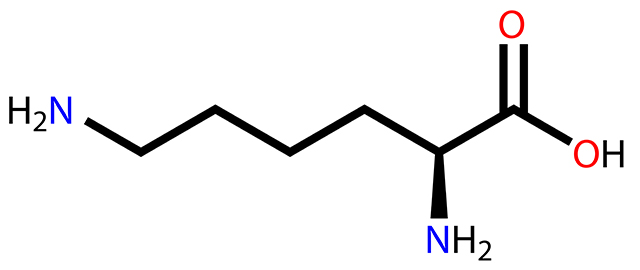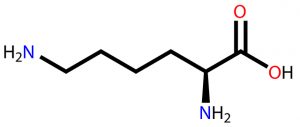
Lysine sources, health benefits and uses
Tuesday, September 12, 2017 by Earl Garcia
http://www.naturalpedia.com/lysine-sources-health-benefits-and-uses.html

Lysine is an essential amino acid that was first discovered in 1889. The nutrient’s chemical structure was eventually identified three years later. According to the Amino Acids Guide website, lysine is an important nutrient that facilitates calcium absorption. The amino acid is also vital in the production of hormones, enzymes, and antibodies.
Being an essential amino acid, lysine is not readily produced by the body. This means that certain foods should be consumed to attain adequate lysine levels. An entry posted on the SELF Nutrition Data website lists poultry, red meat and game meat as primary sources of lysine. Other excellent sources of the essential amino acid include fish — such as tuna, cod, and pike — dairy products, eggs, nuts, and seeds.

Medicinal uses for lysine
Lysine is best known for its protective properties against a host of diseases such as cold sores, diabetes, anxiety, and cancer.
The essential amino acid remains to be a popular oral and topical remedy for cold sores caused by the herpes simplex virus. Previous studies have demonstrated the nutrient’s efficacy in addressing various symptoms of cold sore outbreak including blisters, muscle aches, and a burning sensation during urinating.
While it is still unclear how lysine mitigates these symptoms, health experts inferred that it has something to do with the nutrient’s interaction with arginine. According to a Healthy Focus article, arginine is known to facilitate herpes cell proliferation. The article also noted that lysine combats this by reducing the amount of arginine in the body.
Lysine is notably effective in reducing the risk of developing anxiety disorders. Likewise, the nutrient in known to bind itself to serotonin receptors in the brain to ease anxiety responses. Previous studies have suggested that lysine supplementation may also relieve anxiety-related disorders. Likewise, past studies have shown that lysine may help mitigate the risk of developing other mental disorders such as schizophrenia and Alzheimer’s disease.
In addition, the essential amino acid is found to regulate the body’s blood sugar levels and reduce the odds of developing type-2 diabetes. An article posted on the Healthy And Natural World website noted that lysine works with certain enzymes to prevent harmful glycation in the blood.
Lysine is also touted for its positive effects on the digestive system. The important nutrients is found to contain strong anti-inflammatory properties that strengthen the stomach’s lining. This prevents the onset of leaky gut syndrome. Aside from this, the amino acid’s anti-inflammatory effects may also mitigate the risk of developing joint pain, autoimmune disorders, thyroid disease and fatigue. Besides this, the nutrients in remarkably efficient in facilitating calcium absorption in the body, which in turn reduces the risk of osteoporosis.
Lysine is found to support heart health as well. A previous study reveals that the essential amino acid helps lower blood cholesterol levels and reduce the odds of heart disease onset. According to the study, combining lysine with garlic supplements resulted in a 25 percent decline in blood cholesterol levels in one case. The amino acid inhibits cholesterol buildup in the blood vessels, the researchers said.
The amino acid is also shown to relieve a plethora of skin diseases such as shingles and acne. Likewise, the nutrients is touted to prevent the onset of hair loss. Moreover, Lysine supplementation is known to bolster muscle growth and recovery after exercise.
Body systems supported by lysine
Lysine is particularly effective in maintaining both brain and heart health. The amino acid is found to improve the body’s digestive profile and enhance bone health. Likewise, lysine is helpful in relieving skin diseases and hair loss. It also helps boost both reproductive and muscle health.
Where to learn more
- Nutritional Supplements Prevent Hair Loss: Vitamin C, Lysine, Omega 3
- 5 Natural Ways To Treat Herpes
- The “aging” lie and how atherosclerotic narrowing is responsible for majority of American’s chronic health problems later in life
- Protein and Those Amazing Amino Acids (An Overview)
- Are Your Kids Getting Enough Protein?
Summary
Lysine prevents cold sores, diabetes, and heart disease as well as anxiety and cancer.
Lysine staves off skin disorders, osteoporosis, autoimmune diseases, and Alzheimer’s disease.
Lysine is beneficial to the brain, heart, and muscles as well as the bones and digestive system.
Sources include:
Tagged Under: Tags: Lysine





